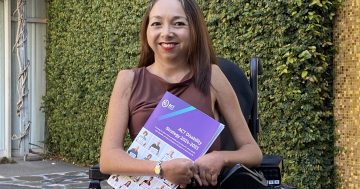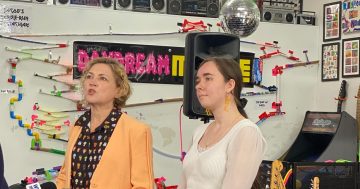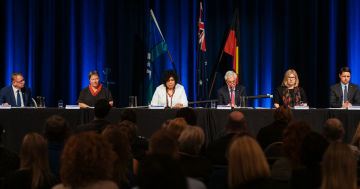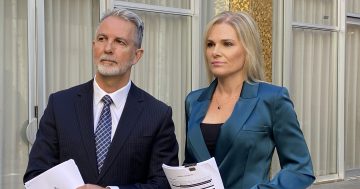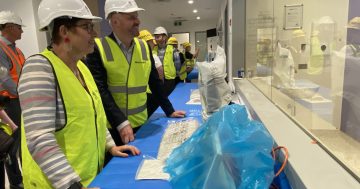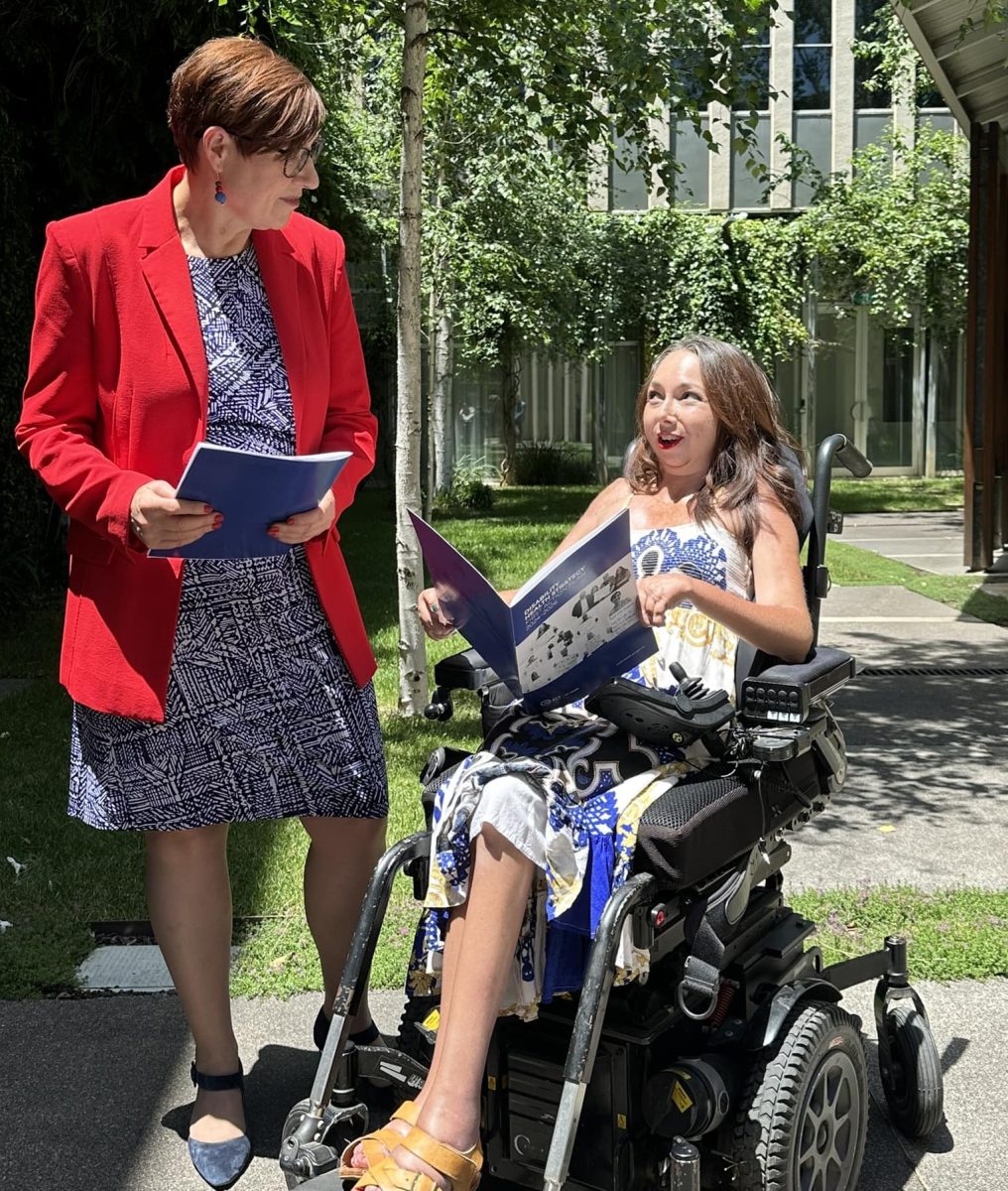
Health Minister Rachel Stephen-Smith and Disability Reference Group chair Renee Heaton hope the new strategy will make healthcare more accessible for everyone. Photo: Rachel Stephen-Smith / Facebook.
When Renee Heaton tried to get a mammogram in the ACT, she found it virtually impossible.
“As a wheelchair user and somebody who is entirely immobile, it was very difficult to find a service that was able to perform a mammogram while I was still able to be in my wheelchair,” she said.
“I know this isn’t just my experience, I know other women with a disability who are wheelchair users and have mobility problems, and they have had the same experience.”
Ms Heaton ended up getting an ultrasound instead of a mammogram, which meant she had to pay for a service that other women can access for free.
It’s experiences such as hers that have helped form the ACT’s Disability Health Strategy 2024-33 and the First Action Plan 2024-26.
Ms Heaton is chair of the Disability Reference Group involved in consultation on these strategies, which she said would made “real tangible differences” to people with disabilities who needed to access healthcare and services.
“Access to healthcare and services are a fundamental human right but unfortunately for people with disability it isn’t as simple as it should be,” she said.
“I’m looking forward to better services for people coming in to and leaving hospital that connects with community supports, and health practitioners knowing about the social model of disability, and using that in their delivery of care so I don’t have to continually explain how I expect to be treated.
“And this is just the start of a whole 10 years of action and improvements.”
The strategy has five focus areas: health and information literacy; service access, design and delivery; emergency planning, preparedness and management; workforce; and data and research.
The priorities of the first three-year action plan would be focused on developing more accessible information on services available, an accessibility audit of ACT Government-owned facilities and services, creating a feedback mechanism for people with disabilities to report their experiences, and disability-focused training for frontline employees.
Health Minister Rachel Stephen-Smith said that while Canberra Health Services (CHS) had its own disability inclusion plan released last year, more needed to be done to ensure all government-owned facilities were accessible to everyone.
“This Strategy and Action Plan have been developed with and for people with disability, family members, carers and advocates. It details how we can better support people with disability and carers through their healthcare journey,” she said.
“People with a disability are a very significant proportion of the patients that [CHS] treat and support every day … so this should be business as usual for our health services, but there will be some additional funding that will be required and that has been committed in relation to things like the accessibility audit of our facilities and services.”
Already, Ms Heaton said she’d witnessed improvements across the health system when it came to making care accessible for people with disabilities and neurodivergence.
“We have already invested in upskilling the workforce in easy English translations, we’ve seen massive improvements in websites, but it does emphasise the need of building supports and structures around the healthcare system,” she said.
She emphasised the importance of experts in the medical and building industries working with and listening to people with disabilities to ensure things remained accessible.
“They might be the technical experts, but we’re the experts in understanding what that experience of that particular service has actually is,” Ms Heaton said.
“Then we can see that that doesn’t lead to major implications down the line that require more investment and a lot more time.”
On top of the strategy for healthcare, Ms Heaton urged all areas of Canberra and government to make sure they were taking people with disabilities and neurodivergence into account.
“[For example] something like transport – it’s all well and good to have a really great, accessible service … [but] if you can’t get there, it’s almost a fail,” she said.












